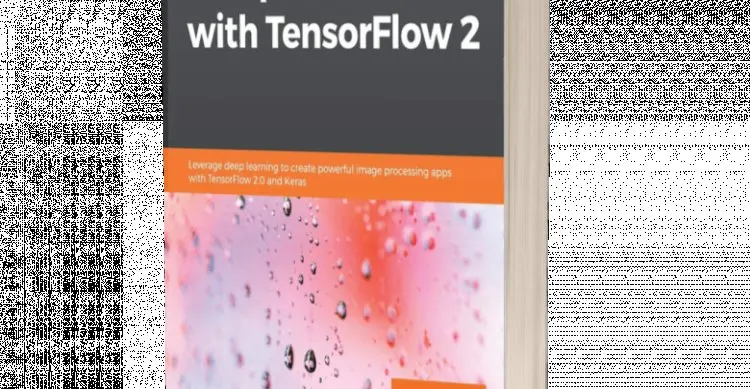Deep Learning for Computer Vision with TensorFlow 2
ConvNets, ResNet, Inception, Faster R-CNN, SSD, TensorFlow Object Detection, YOLOv4, License Plate OCR

Deep Learning for Computer Vision with TensorFlow 2 udemy course
ConvNets, ResNet, Inception, Faster R-CNN, SSD, TensorFlow Object Detection, YOLOv4, License Plate OCR
What you'll learn:
- Learn about the state of the art models in object detection and image classification models.
- You will learn the theory behind different algorithms in computer vision in a concise way.
- You will be able to deploy your own applications in Computer Vision
- How to collect image data from different resources
Requirements:
- Machine Learning concepts, Linear Algebra, Python, TensorFlow, Keras and OpenCV
Description:
This course is focused in the application of Deep Learning for image classification and object detection. This course originally was designed in TensorFlow version 1.X but now the lessons and codes were updated with TensorFlow version 2.X, mainly by the use of Google Colaboratory(Colab).
If you dont have an available GPU in your local system or you want to experiment in an environment without any previous installation or setup, dont worry you can follow the course smootly because all codes were optimized in Google Colab. Deep Learning for Computer Vision with TensorFlow 2 Udemy
The course starts with a concise review of the main concepts in Deep Learning, because this course focused in the application of Deep Learning in the computer vision field.
The main computer vision tasks covered in this course are image classification and object detection.
After reviewing the deep learning theory you will enter in the study of Convolutional Neural Networks (ConvNets) for image classification studying the following concepts and algorithms:
- Image Fundamentals
- Loading images in TensorFlow
- The building blocks of ConvNets such as:
Convolution Operation,
Filters,
Batch Normalization,
ReLU Function,
DropOut,
Pooling Layers,
Dilation,
Shared Weights,
Image Augmentation, etc
- Different ConvNets architectures such as:
LeNet5,
AlexNet,
VGG-16,
ResNet
Inception.
- Many practical applications using famous datasets such as:
Covid19 on X-Ray images,
CIFAR10,
BCCD,
COCO dataset,
Open Images Dataset V6 through Voxel FiftyOne,
ROBOFLOW,
You will also learn how to work and collect image data through web scraping with
Python and Selenium.
Finally in the Object Detection chapter we will explore the theory and the application using Transfer Learning approach using the lastest state of the art algorithms with practical applications. Some of the content in this Chapter is the following:
- Theoretical background for Selective Search algorith,
- Theoretical background for R-CNN, Fast R-CNN and Faster R-CNN,
- Faster R-CNN application on BCCD dataset for detecting blood cells,
- Theoretical background for Single Shot Detector (SSD),
- Training your customs datasets using different models with TensorFlow Object Detection API
- Object Detection on images, videos and livestreaming,
- YOLOv2 theory and practical application in a custom dataset (R2D2 dataset)
- YOLOv3 practical application in a custom dataset (R2D2 and C3PO dataset)
- YOLOv4 theory and practical application in a custom dataset (R2D2 and C3PO dataset)
- Practical application for License Plate recognition converting the plates images in raw text format (OCR) with Yolov4, OpenCV and ConvNets
Finally you will learn how to construct and train your own dataset through GPU computing running Yolo v2, Yolo v3 and the latest Yolo v4 using Google Colab.
You will find in this course a consice review of the theory with intuitive concepts of the algorithms, and you will be able to put in practice your knowledge with many practical examples using your own datasets.
This course is very well qualified by the students, some of the inspiring comments are:
* Maximiliano D'Amico (5 stars): Very interesting and updated course on YOLO!
* Stefan Lankester (5 stars): Thanks Carlos for this valuable training. Good explanation with broad treatment of the subject object recognition in images and video. Showing interesting examples and references to the needed resources. Good explanation about which versions of different python packages should be used for successful results.
* Shihab (5 stars): It was a really amazing course. Must recommend for everyone.
* Estanislau de Sena Filho (5 stars): Excellent course. Excellent explanation. It's the best machine learning course for computer vision. I recommend it
* Areej AI Medinah (5 stars): The course is really good for computer vision. It consists of all material required to put computer vision projects in practice. After building a great understanding through theory, it also gives hands-on experience.
* Dave Roberto (5 stars): The course is completely worth it. The teacher clearly conveys the concepts and it is clear that he understands them very well (there is not the same feeling with other courses). The schemes he uses are not the usual ones you can see in other courses, but they really help much better to illustrate and understand. I would give eight stars to the course, but the maximum is five. It's one of the few Udemy courses that has left me really satisfied.
The student has the opportunity to get a feedback from the instructor through Q&A forums, by email: machine.learning.eirl@gmail.com or by Twitter: @AILearningCQ
Who this course is for:
- Professionals who wants to learn advanced applications on Computer Vision using deep learning concepts.
- It's an intermediate level course not intended for begineers.
- How To Achieve Your Personal Goals In 12 Months
- Marketing Tool: Media Budgeting: CPC/PPC, CPA, CPM explained
- StockSutra Simple Stock/Financial TradingByEx-IAS/Allied2022
- Discover GrowthHacks with Digital Marketing (2020)
Course Details:
-
12 hours on-demand video
-
1 article
-
43 downloadable resources
-
Full lifetime access
-
Access on mobile and TV
-
Certificate of completion
Deep Learning for Computer Vision with TensorFlow 2 udemy free download
ConvNets, ResNet, Inception, Faster R-CNN, SSD, TensorFlow Object Detection, YOLOv4, License Plate OCR
Demo Link: https://www.udemy.com/course/deep-learning-for-computer-vision-with-tensor-flow-and-keras/

